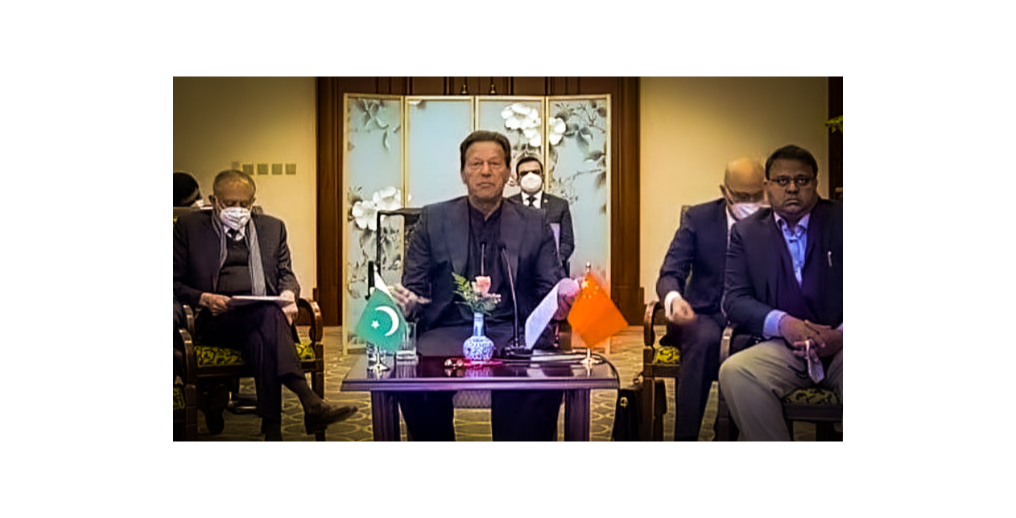In Beijing, Prime Minister Imran Khan meets with Chinese think tanks and universities.
The Prime Minister blames India for regional insecurity.
Pakistan, the PM recalls, has previously played a role in building bridges and is ready to do so again.
BEIJING: Prime Minister Imran Khan, who is on a four-day visit to China, has described India’s aggressive behaviour and the dominant Hindutva ideology as a threat to regional peace and a source of the region’s lingering instability.
The premier made his remarks during an exclusive meeting in Beijing with the heads and representatives of leading Chinese think tanks, universities, and the Pakistan Study Centre.
According to Prime Minister Imran, the current Indian regime is causing long-term instability in the region. “Indian atrocities continue in Indian-occupied Kashmir.”
Kashmir is occupied (IoK). “The world should pay attention to India’s ongoing atrocities against Kashmiris,” he insisted.
He also expressed gratitude to China for its unwavering support for the IoK dispute, emphasising the importance of Pakistan-China relations in ensuring regional stability and prosperity.
“With so many global challenges, the world didn’t need another Cold War.” Divisions could lead to increased suffering and prevent common benefits from being realised. As a result, Pakistan believed that cooperation, rather than confrontation, should be the driving force in international politics,” he said.
He recalled that Pakistan had previously played a role in building bridges and that it was willing to do so again.
In reference to Pakistan’s National Security Policy, the prime minister emphasised that his government prioritised economic security. This vision is based on connectivity and development cooperation, for which China remains an essential partner for Pakistan, he added.
During the meeting, the importance of Sino-Pak relations in ensuring regional stability and prosperity was also discussed.
Reiterating Pakistan’s All-Weather Strategic Partnership with China, Prime Minister Nawaz Sharif emphasised the significance of the China-Pakistan Economic Corridor (CPEC) as a flagship project of President Xi Jinping’s Belt and Road Initiative.
He emphasised that, while Phase I of the CPEC focused on infrastructure development and connectivity, Phase II would focus on industrialization, information technology cooperation, and agricultural transformation.
The prime minister emphasised that Pakistan offers investment incentives that are on par with or better than those offered by other investment destinations.
When discussing regional dynamics, the premier stated that he believed it was in Pakistan and China’s mutual interests to work together to ensure peace and security in Afghanistan.
He urged the international community to ensure that Afghans were not abandoned in their hour of need. He emphasised the significance of Pakistan and China cooperating with Afghanistan to advance shared goals of peace, development, and connectivity.He went on to say that cooperation to ensure peace and security in Afghanistan is in both Pakistan’s and China’s interests. He emphasised that the international community should not abandon Afghans during this difficult period.

